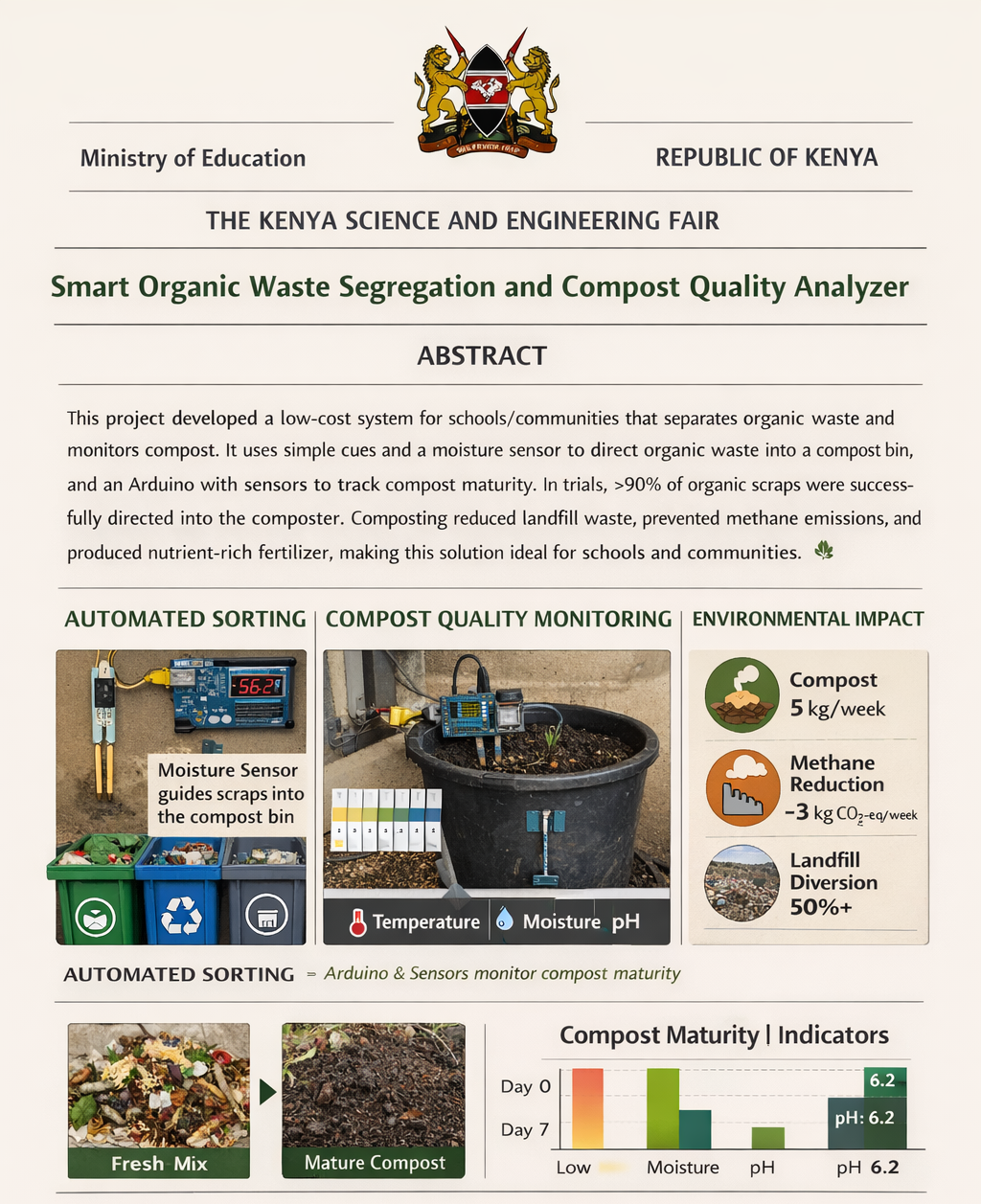
Introduction
Biodiesel is an environmentally friendly alternative to fossil fuels, produced from renewable sources such as vegetable oils and animal fats. Avocado seeds, which are often discarded as waste, contain oil that can be extracted and converted into biodiesel through a process known as transesterification. This project explores the feasibility of using avocado seeds as a raw material for biodiesel production, contributing to waste management and sustainable energy solutions. By utilizing a waste product, this approach helps reduce dependency on traditional fuels while promoting a circular economy.
Statement of the Problem
The increasing demand for fossil fuels and their environmental impact have raised concerns about sustainability and pollution. Fossil fuel combustion releases greenhouse gases, leading to global warming and environmental degradation. Additionally, large quantities of avocado seeds are discarded as waste despite their potential as a biofuel source. The underutilization of these seeds results in a loss of valuable resources that could contribute to sustainable energy production. This project aims to address these issues by investigating the viability of producing biodiesel from avocado seed oil as an alternative fuel source, thereby reducing waste and promoting renewable energy solutions.
Objectives
- To extract oil from avocado seeds efficiently using various extraction techniques.
- To convert the extracted oil into biodiesel through the transesterification process.
- To evaluate the quality and efficiency of the biodiesel produced by analyzing properties such as viscosity, density, and combustion characteristics.
- To explore the potential of avocado seed biodiesel as a sustainable energy source and compare it with conventional diesel.
- To assess the economic viability of avocado seed biodiesel production and potential large-scale applications.
Apparatus
- Blender or grinder (for seed crushing)
- Soxhlet extractor or mechanical press (for oil extraction)
- Beakers (500 ml, 1000 ml)
- Separatory funnel (for phase separation)
- Magnetic stirrer and hot plate (for controlled heating and mixing)
- Thermometer (for temperature monitoring)
- Digital weighing scale (for accurate measurements)
- Filter paper and filtration setup (for impurity removal)
- Glass storage containers (for storing extracted oil and biodiesel)
- pH meter (for monitoring acidity levels during purification)
- Viscosity meter (for testing fuel properties)
Materials
- Avocado seeds (cleaned and dried)
- Hexane or ethanol (for oil extraction)
- Sodium hydroxide (NaOH) or potassium hydroxide (KOH) (as a catalyst in transesterification)
- Methanol or ethanol (for transesterification reaction)
- Distilled water (for washing and purifying biodiesel)
Procedure
Oil Extraction
- Collect and clean avocado seeds to remove dirt and unwanted residues.
- Dry the seeds under the sun for 3-5 days to reduce moisture content and enhance oil extraction efficiency.
- Grind the dried seeds into a fine powder using a blender or mechanical grinder.
- Extract oil using the Soxhlet extraction method with hexane or ethanol as a solvent.
- Filter the extracted oil using filter paper to remove solid particles and impurities.
- Evaporate the solvent by heating the extracted oil gently to obtain pure avocado seed oil.
Transesterification
- Heat the extracted avocado seed oil to a temperature of 55-60°C.
- Prepare a methanol-catalyst mixture by dissolving sodium hydroxide (NaOH) or potassium hydroxide (KOH) in methanol.
- Add the methanol-catalyst mixture to the heated oil and stir continuously for 1-2 hours to ensure complete reaction.
- Allow the mixture to settle for 24 hours to enable phase separation between biodiesel (top layer) and glycerol (bottom layer).
Purification
- Separate the biodiesel layer from glycerol using a separatory funnel.
- Wash the biodiesel with warm distilled water multiple times to remove any remaining catalysts and soap residues.
- Heat the biodiesel gently to remove any remaining water content and ensure proper purity.
- Store the purified biodiesel in a clean, dry container for further testing and analysis.
Observation
- The extracted oil appears yellowish or brown, depending on the avocado seed variety and extraction method used.
- During transesterification, the reaction mixture changes in consistency, and after settling, two distinct layers (biodiesel and glycerol) are observed.
- The purified biodiesel is lighter in color compared to raw extracted oil and has a lower viscosity.
- The produced biodiesel burns with a cleaner flame than conventional fossil fuels, indicating reduced soot formation and emissions.
- The fuel exhibits good fluidity and can be blended with conventional diesel for enhanced performance.
Discussion
The project successfully demonstrated that avocado seeds contain sufficient oil for biodiesel production. The extraction process using hexane was found to be more efficient than ethanol extraction in terms of oil yield. The transesterification process successfully converted avocado seed oil into biodiesel, which exhibited characteristics such as lower viscosity and cleaner combustion, making it a promising alternative fuel. However, certain challenges must be addressed, such as optimizing the oil extraction process to increase yield, improving purification methods to enhance biodiesel quality, and evaluating engine performance when using avocado seed biodiesel. Additionally, solvent recovery techniques should be implemented to reduce processing costs and environmental impact.
The economic feasibility of avocado seed biodiesel production depends on factors such as seed availability, extraction efficiency, and market demand for alternative fuels. Scaling up the process would require further research into automation and cost-effective refining techniques. The environmental benefits, including reduced carbon emissions and decreased reliance on fossil fuels, make avocado seed biodiesel a promising renewable energy source.
Conclusion
Avocado seeds can be a valuable resource for biodiesel production, contributing to renewable energy solutions and waste management. This project highlights the potential of avocado seed biodiesel as an eco-friendly fuel alternative, though further research is needed to optimize yield and efficiency for commercial applications. By utilizing waste materials, this approach aligns with sustainability goals and offers a viable solution for reducing dependence on non-renewable energy sources. Future studies should focus on improving the extraction process, optimizing fuel properties, and conducting engine performance tests to determine practical applications of avocado seed biodiesel in the transportation and energy sectors.




